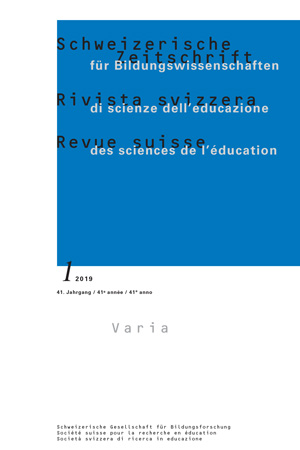The governance of curriculum implementation – Predictors of school principals’ innovation acceptance
DOI:
https://doi.org/10.24452/sjer.41.1.10Keywords:
Innovation acceptance, school principals, educational governance, curriculum implementationAbstract
School principals are key figures for the implementation of the new «Curriculum 21» (Lehrplan 21) in the German-speaking Swiss cantons. This study is based on an interdisciplinary perspective, integrating theoretical concepts from both educational policy and organizational psychology. It investigates the role of educational governance factors outside and inside the school on the one hand, and the emotional experience of those governance factors on the other hand as explanatory variables for school principals’ acceptance of the new curriculum. Data was collected with a standardized questionnaire filled out by 359 school principals in the canton of Bern. Results indicate that governance factors inside school and a positive emotional experience of the governance of change strongly predict principals’ acceptance of the curriculum, while governance factors outside the school have only weak explanatory power.



